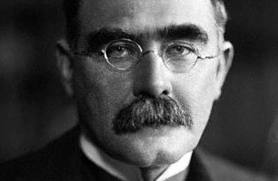 Great leaders understand that leadership is a vocation that requires hard work and dedication. My grandfather understood this. He lived by the motto, “Anything worth doing is worth doing right.” When I was a boy, my mother introduced me to his favorite poem, “If—,” by Rudyard Kipling. It has come to form the foundation of my approach to leadership. The poem’s words have helped me begin to unravel the complexities and challenges of leadership.
Great leaders understand that leadership is a vocation that requires hard work and dedication. My grandfather understood this. He lived by the motto, “Anything worth doing is worth doing right.” When I was a boy, my mother introduced me to his favorite poem, “If—,” by Rudyard Kipling. It has come to form the foundation of my approach to leadership. The poem’s words have helped me begin to unravel the complexities and challenges of leadership.
While Kipling wrote “If—” to celebrate the exploits of an overzealous British colonial leader, he published it as a guide for young men at the turn of the twentieth century. He intended to help them become better men and better leaders. His poem and his guidance described a perfection that was unattainable, and young men who were frustrated by the incredibly high bar that he had set for them often accosted Kipling. His words present today’s leaders—men and women, young and old—with the same unattainable perfection.
But leadership is not about attaining perfection. It is about knowing who we are and what we believe. It is about seeing things that others can’t or won’t see. It is about motivating others to attempt things they thought were impossible. It is about having a dream and working to attain it. The most important lesson the poem teaches is that one should have the boldness and courage to step up and lead. Kipling’s words remain powerful and his wisdom enduring:
Rudyard Kipling’s “If—”
Awareness, Choice, and the “If” Sixteen
 So, what leadership advice could a twenty-first-century CIO possibly get—or want—from a hundred-year-old poem written by a poet who is most remembered for his children’s stories? What can a modern age IT executive learn from a Victorian poem?
So, what leadership advice could a twenty-first-century CIO possibly get—or want—from a hundred-year-old poem written by a poet who is most remembered for his children’s stories? What can a modern age IT executive learn from a Victorian poem?
“If—” describes a path we may choose to follow to become better leaders. Each of the poem’s sixteen couplets describes an essential leadership attribute. By incorporating the concept of “awareness and choice,” they form a comprehensive leadership structure, which I call the “If” Sixteen Leadership Framework.
The “If” Sixteen Leadership Attributes help us answer four questions that define each of us as leaders:
• Who am I, and what do I believe?
• What do I want?
• How will I attract and motivate others?
• How will I earn and retain the privilege to lead?

Written by Doug Moran
Doug Moran, PCC, is the president of If You Will Lead, LLC and co-founder of The CoHero Institute for Collaborative Leadership. Doug is a former Divisional CIO for Capital One Financial Services, and author of the book If You Will Lead: Enduring Wisdom for 21st-Century Leaders.




